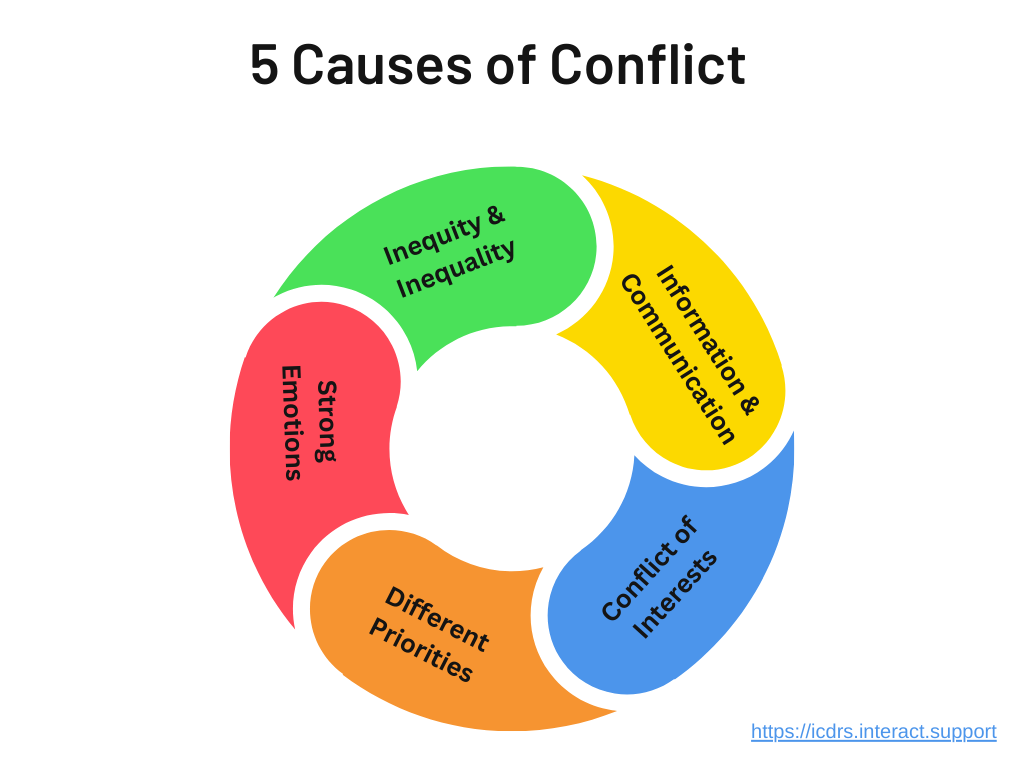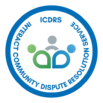What Causes Conflict?
While often uncomfortable, conflict is common. It can result from a number of different causes.
Disputes and conflict can be a healthy part of life leading to greater understanding and improved collaboration.
Or it can lead to broken relationships, a loss of trust or escalation into even more entrenched, unproductive conflict.
As dispute resolution professionals we know that in the majority of cases, conflict can be resolved through clear communication and improved mutual understanding. This can be achieved through mediation. Find out more about mediation with ICDRS.

1. Information Problems and Poor Communication
Misinformation or a lack of information are very common causes of conflict. Sometimes people believe something is true without it actually being true.
This is common in a cross-cultural conflict where assumptions mislead, and communication is not good enough. However, information problems can happen at any time. Too little, missing context or a host of other reasons for information problems can lead to people being upset with each other.
One of the common responses that people have when they are in conflict with someone else is to shut down communication. Refusing to communicate can seem like it is a good way to prevent conflict from escalating, but it is a short-term strategy. It usually makes things worse in the long term. If there is no communication, misunderstandings are not resolved, and the conflict continues to simmer along, disrupting how people interact and work together.
2. Conflict of Interest
Interests are what we think are important or want. A conflict of interest, whether perceived or actual, can be a source of conflict.
Sometimes, there really is an issue where there is competition for some sort of resource, money, or whatever that will require a compromise to resolve.
Sometimes with more examination of the problem and a greater understanding about what the interests really are, a solution that is better than a compromise can be found for the conflict.
If you are unsure what we mean let us tell you a story about two girls and an orange. The post is coming soon.
3 Different Priorities
Sometimes, we use different sets of criteria for evaluating and prioritising ideas or things that are important to us.
What seems important to me may be something you think is trivial and not worth bothering about. Unless there is a mutual understanding and agreed way of working out what is essential, someone is going to be upset, probably trying to push someone who is reluctant to do something they don’t think matters and conflict is the result.
In mediation, we can help you identify these “values” conflicts where there are different values or priorities that need to be understood and reconciled.
4 Strong emotions
Emotions are our guidance system and provide us with rapid feedback on danger and opportunity. Past trauma and life experiences can also trigger them. Intense emotions, sometimes out of proportion to the current situation can be a source of conflict and a barrier to conflict resolution.
If someone is caught up in strong emotions, they are unable to think rationally, making it harder to resolve issues.
Mediation is a structured but flexible process that helps people maintain their emotional control. If their emotions do start to become too much for them, the mediator can help with strategies to avoid an escalation causing harm.
5. Perceived or real inequity or unequal control
Competition for power or for what feels fair is a common source of conflict. Concepts such as fairness, equality, and equity are often involved in conflict situations.
Conclusion
All conflicts can be resolved with the right mindset. Sometimes, a mediator is needed to help achieve this mindset.
Contact us to find out more.
